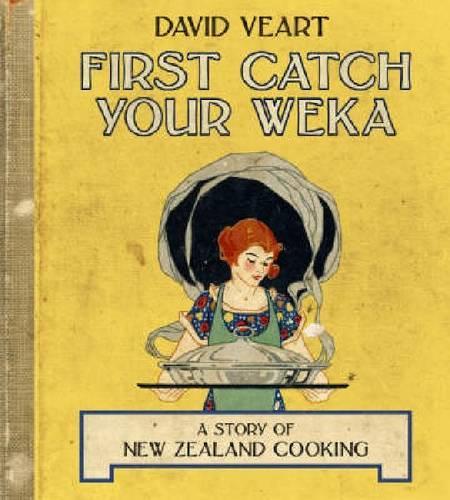
First Catch Your Weka: A Story of New Zealand Cooking
(Paperback)
Publishing Details
First Catch Your Weka: A Story of New Zealand Cooking
By (Author) David Veart
Auckland University Press
Auckland University Press
1st January 2008
New Zealand
Classifications
General
Non Fiction
641.5993
Short-listed for NZ Society of Authors Best First Book Award Non-Fiction Category 2009
Physical Properties
Paperback
360
Description
'First catch your Weka', the explorer Charles Heaphy advised in 1842, then stuff it with sage and onion and roast it on a stick. In that simple way began a great tradition of New Zealand cooking, from Heaphy to the Edmonds Cookery Book, Alison Holst, Hudson and Halls, and the meal on your plate today. In this book, David Veart tells the story of what New Zealanders cooked through the recipes we used. Analysing the crusty deposits and grubby thumb prints on a century and a half of cook books, Veart chronicles the extraordinary foods that we have loved: from boiled calf's head to the Bill Rowling cake, Irish famine soup to tinned kidneys with mushrooms. First Catch your Weka illuminates the basic elements that make New Zealand cooking distinctive and reveals how our cuisine and our culture have changed. Throughout that history, Veart finds a people who frequently first liked to catch their weka - building a meal out of oysters taken from the rocks, vegetables from the garden and a lamb from the neighbouring farm. By telling the history of what we ate, First Catch your Weka tells us a great deal about who we have been.
Reviews
Finalist, History, 2009 Montana New Zealand Book Awards
Finalist, 2009 NZSA E H McCormick Award for Best First Book of Non-Fiction
"The first thing you want to do when you hold this big beautiful book in your hands is to riffle through it, looking at the astonishing photographs, running your tongue over the recipes and stopping to read whatever catches your eye." --New Zealand Books
Author Bio
Aucklander David Veart is a DoC Historian and Archaeologist and an expert in the history of North Head, Mangere Mountain and islands of the Hauraki Gulf who regularly conducts public guided walks of, particularly, the forts of North Head. He has written scripts and narrated interpretative films exploring the history of some of those places. A member of the Auckland Heritage Committee of the Institute of Professional Engineers, he is also, somewhat unexpectedly, an expert in New Zealand's culinary history and a lover of cooking and recipes. He owns a large collection of cook books and has presented at conferences on aspects of culinary history.
